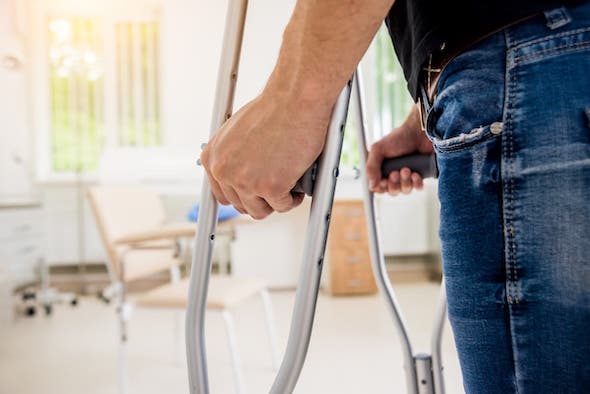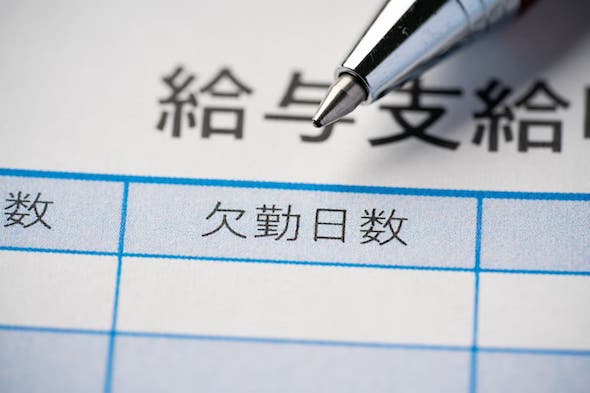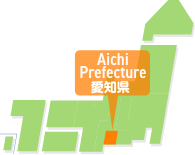What happens to your salary if you take time off work in Japan? Introducing the systems and allowances you can use

Hello, this is Kano from JAC (Japan Association for Construction Human Resources).
You worry about whether you'll get paid if you have to take time off work due to illness or injury.
In Japan, there is a system in place that will compensate you for your salary when you take time off work due to illness or injury.
Depending on the company, the reason/cause for taking time off, the number of days, etc., you may not receive a salary, so it's a good idea to know about the system and conditions.
What happens to my pay if I take time off work?
In Japan, there are two systems that guarantee workers' salaries: paid leave and sickness allowance.
What is paid leave?
Paid leave is a system that allows employees to take time off while still receiving a salary.
If you work continuously for six months after joining the company and attend work on more than 80% of all working days, you will be given 10 days of paid vacation.
The more years you work, the more paid vacation you get (up to a maximum of 20 days per year).
To use paid leave, you must apply to your company in advance.
During paid leave, you will be paid the same amount as for regular work.
You don't have to tell your company why you're using your paid leave.
It can also be used on days when you have to rest, travel, or do other business.
What is sickness allowance?
Sickness and injury benefits are a system in which workers are paid two-thirds of their salary when they are unable to work due to an illness or injury unrelated to work.
To receive sickness benefits, you must meet all of the following conditions:
- Have health insurance
- The leave is for treatment of illness or injury not related to work
- Unable to work due to illness or injury
- Unable to work for 4 days or more, including 3 consecutive days
- No salary payment during leave
Sickness and injury benefits are paid for one year and six months from the date of payment.
You never know when illness or injury will occur.
It is a good idea to know how to call an ambulance just in case.
Please see this article for detailed instructions on how to call an ambulance.
How do you call an ambulance in Japan? Learn the correct way to use one
"Absenteeism" means not getting paid if you take time off work

Absenteeism occurs when an employee takes time off work for personal reasons on a day when they are supposed to be at work.
If you are absent, you generally do not receive pay.
Absences will occur in the following cases:
- Taking paid leave without applying for it in advance
- Taking a leave without any paid leave remaining
For example, taking time off work due to sudden illness without using paid leave would be an example of this.
However, the following cases will not be considered as absences:
- I was granted permission to take paid leave.
- Take leave using the company's vacation system
- Take time off due to company closure
If you have any remaining paid leave, you can use it if your company gives you permission.
Reasons for not getting paid for absences
The reason you don't get paid if you're absent is because of the no work, no pay principle.
The no-work, no-pay principle is the idea that if an employee does not work on a day when they are required to work, the company is not obligated to pay them.
This idea is also stipulated in Japanese law.
The no work, no pay principle also applies to hourly absences.
Companies are allowed to deduct employees' wages even if they miss work hours due to arriving late or leaving early.
What is absence deduction? Here's a general calculation method
Absence deductions are deductions made from your pay for work you do not work.
The calculation method is "monthly salary ÷ scheduled working days × number of days absent (or hours absent)".
As an example, let's calculate the following conditions:
- Scheduled working days: 20 days
- Monthly salary: 200,000 yen
- Number of days absent: 3 days
200,000 yen ÷ 20 days × 3 days = 30,000 yen, so your salary for this month is 170,000 yen.
Deductions for absences are often stated in the company's rules and regulations, so be sure to check.
You can take a leave of absence if you are absent for an extended period of time.
If you are unable to work due to illness or injury and your absence continues, you may be able to take a leave of absence.
Although you need your company's permission, you can take time off work for longer than if you were absent.
However, as with absences, you generally will not be paid.
What happens if I take time off due to work-related illness or injury?
If you take a break due to illness or injury caused by work, worker accident insurance applies.
worker accident insurance is a system that provides financial compensation to workers and their families in the event of illness or injury due to work.
It is paid when:
- Occupational accidents: Injuries or illnesses that occur during work (e.g. accidents at a construction site)
- Commuting accidents: Injuries or accidents that occur while commuting (e.g. traffic accidents on the way to work)
In addition, the following compensation will be provided:
- Medical expenses compensation: Full payment of hospital treatment costs
- Compensation for absence from work: 60-80% of salary paid during the period of inability to work
- Disability compensation: If you are left with a disability, you will receive a lump sum or pension.
- Survivor's compensation: In the event of death, a lump sum or pension is paid to the surviving family members
worker accident insurance The fee is borne by the employer (company).
If you take a break from work due to a work-related illness or injury, JAC has a compensation scheme for Specified Skilled Worker (i) in the construction sector.
worker accident insurance plus compensation, so you can work with peace of mind!
Click here for information about JAC's compensation system
Summary: Whether or not you receive pay when you take time off work depends on the type of leave you take.
If you take time off work due to illness or injury, you will still be paid once paid leave is applied.
Paid leave is a period of 10 days or more of paid leave if you meet a certain working period.
If you want to use paid time off, you don't need to tell the company why.
Injury and illness allowance is paid two-thirds of your salary if you meet the conditions when you are unable to work due to illness or injury outside of work.
If you have not applied for paid leave in advance or if you do not have any paid leave left, you will be absent from work.
In general, if you are absent, you will not be paid.
You can also use worker accident insurance when you are unable to work due to illness or injury caused by work.
worker accident insurance will give you financial compensation while you rest.
In this way, Japan has a system in place that guarantees salary if you are unable to work.
If you get sick or injured, don't worry about your salary and take a good rest.
About us, JAC
JAC(Japan Association for Construction Human Resources)is an organization that supports all Specified Skilled Workers working in the Japan construction industry. We work with companies that accept Specified Skilled Workers to create a work environment that is easy for everyone to work in.
We're also taking the exams you need to become a Specified Skilled Workers!
And JAC has received many requests for job offers from companies that want Specified Skilled Workers to work for.
Specified Skilled Workers Wanted! Job Listings
For those of you who want to work in Japan using Specified Skills, we are introducing jobs that match your occupation and aspirations!
If you have any problems, please feel free to contact us!








